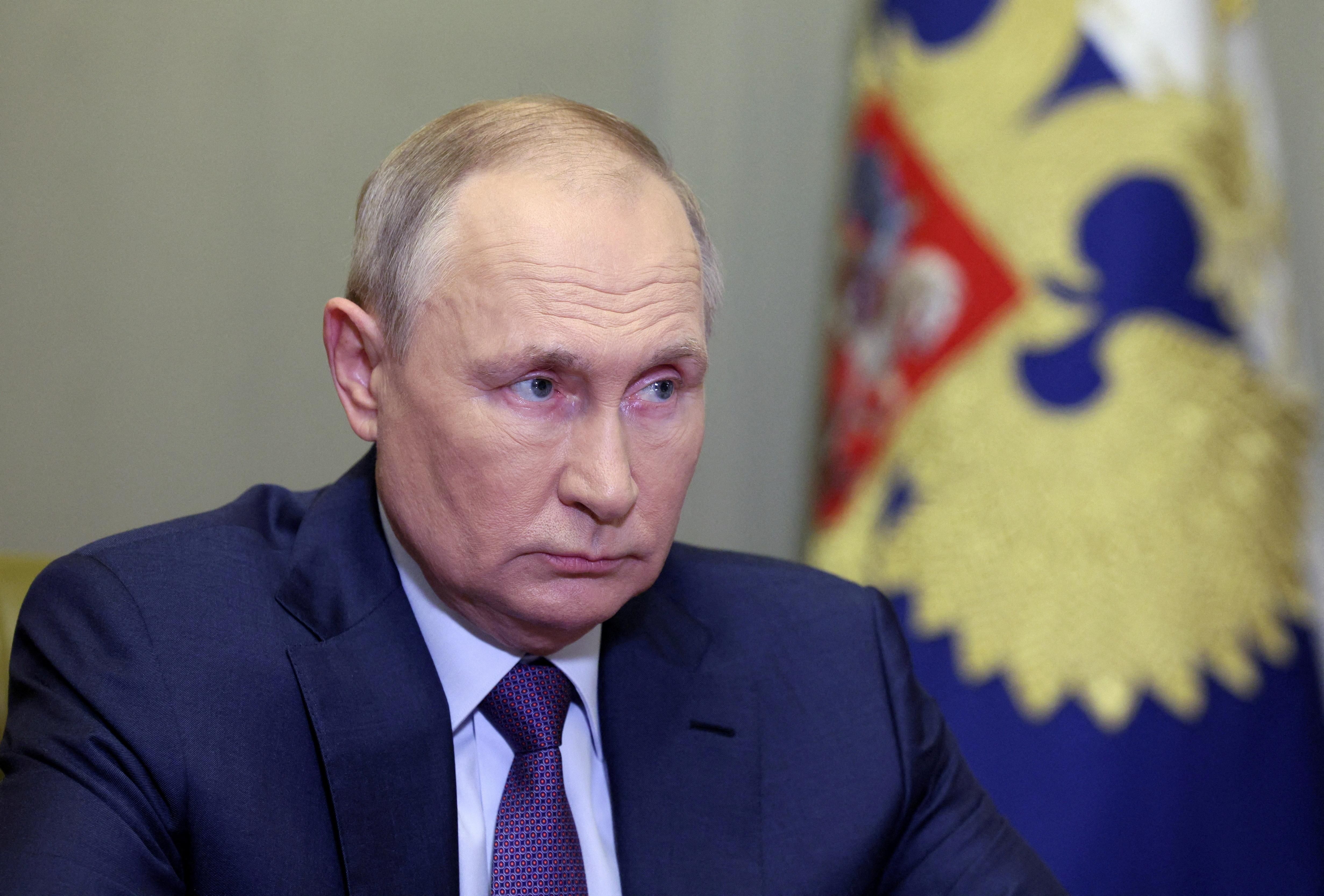Vladimir Putin responded on Monday to Kyiv's (alleged) involvement in blowing up part of the only bridge connecting Crimea to Russia by unleashing fire and fury against Ukrainian cities.
Although some feared that attacking Crimea would push Putin to go nuclear, his retaliation was swift but conventional — and somewhat measured in terms of the actual damage done by an aggressor capable of wanton bloodshed. Also, Russia’s president blamed the blast on Ukrainian "terrorism," not the West, which means he doesn’t want to pick a direct fight with NATO.
How did we get here? Will it be a turning point in the war? And what might Putin do next?
The symbolic and strategic importance of the Kerch Strait Bridge cannot be overstated — on both sides. For Russia, it was an engineering feat that solidified its control over the peninsula Moscow annexed in 2014 and is crucial for keeping military supply lines open between Crimea and the Russian mainland. For Ukraine, it was a painful reminder of that occupation and, above all, a legitimate military target.
Indeed, even only partial damage to the rail lines on the bridge might hurt Russia's ability to move troops and equipment back and forth. The only alternative is the hard-to-traverse "land bridge" through four Ukrainian regions recently annexed by the Kremlin, which could well become the next objective for Kyiv.
Still, the airstrikes are likely a one-off tactical response to a strategic setback. Putin’s domestic audience demanded a strong retaliation to the bridge blast, says Alex Brideau, Eurasia Group's lead Russia analyst. But beyond that, he adds, the Russians need to be practical: they're running low on precision weapons and can't sustain a prolonged airstrike campaign.
Putin is signaling two things with his response. First, “that he has the situation under control, which is important for him at a time when more people in Russia are questioning that," says Brideau. Second, he’s warning the Ukrainians that he's willing to escalate further. But what that means is unclear.
"He's being ambiguous about it. He's not giving the Ukrainians something specific to to think that they shouldn't try a particular thing because Putin would respond with something even more aggressive the next time around."
Putin, Brideau adds, has spent the last few weeks scrambling to demonstrate that whatever happens in Ukraine, he knows what to do next.
"The problem is that it's not clear just how much everybody still trusts him. They're not going to overthrow him or anything. But he has more convincing that he has to do now compared to before."
For Kyiv, the attack on the bridge was certainly worth the risk. "The Ukrainian perspective about the war has really hardened, especially after Putin's recent decision to annex four Ukrainian regions," Brideau says. "They don't have a lot to lose in being very forward that their attitude is to retake territory."
That explains why Ukraine's President Volodymyr Zelensky has gone from asking for direct talks with Putin to last week signing a decree ruling out direct negotiations with him. In other words, Zelensky knows that talking to Putin is a fool's errand: the Russian leader will not accept peace without taking territory or a stable security relationship with a sovereign Ukraine.
Russia's retaliation will give Ukrainians anything but pause in their resolve to win the war, says Brideau. Don't be surprised if there’s another attack on the bridge.
Putin is mistaken if he thinks he can scare Ukraine into capitulation, says Brideau. The airstrikes are "more likely to harden the public resolve that the war needs to be won on Ukrainian terms because people are going to blame Putin long before they're going to blame Zelensky for their problems."
They might also strengthen the Western resolve to support Ukraine and stand up to Russia. Images of Russian missile attacks on civilians in Ukrainian cities will hardly encourage the Europeans to push Ukraine to sue for peace.
For Brideau, further raids will only “solidify some of the trends that have been evident throughout the war: increasing Ukrainian unity domestically and this unity that we've seen between Europe and the US and other Western countries on what to do about it."
Finally, are we now closer to what US President Joe Biden would call Armageddon or to Putin asking for an off-ramp? There's nothing to indicate that the Russian leader is now more likely to use a tactical nuclear weapon than before. If anything, Putin's language referring to the bridge blast as terrorism likely means he leans more toward conventional responses than nukes.
"The chance of Russia using a nuclear weapon remains very low,” Brideau says. “The risk is not zero, but it is very low."
This article comes to you from the Signal newsletter team of GZERO Media. Sign up today.
